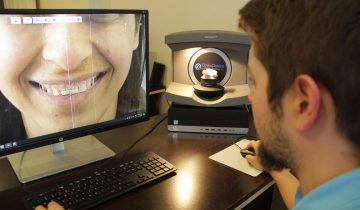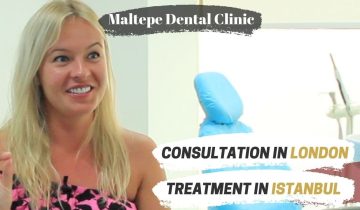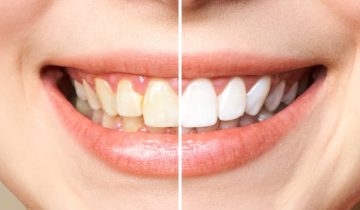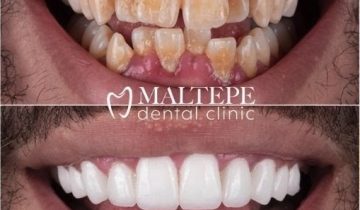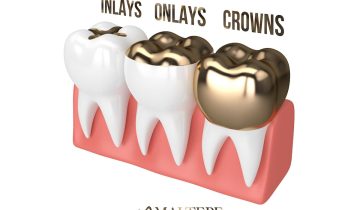Last updated on February 19th, 2024
Denture cleaning is very important to maintain good oral health for denture wearers. Denture wearers should stick to daily brushing and denture cleansing to remove microorganisms surrounding the dentures, according to a study published in Gerodontology in 2012. However, effective denture cleaning requires some research and practice.
In this post, we are explaining the best cleaning methods to maximize denture cleaning. The article handles the issue both theoretically and practically in a very simplified way so that you can make the most of it, reconsider the way you clean your dentures, and make critical adjustments or changes where necessary. Note that, you should always see your dentist for the best treatment or practice for you.
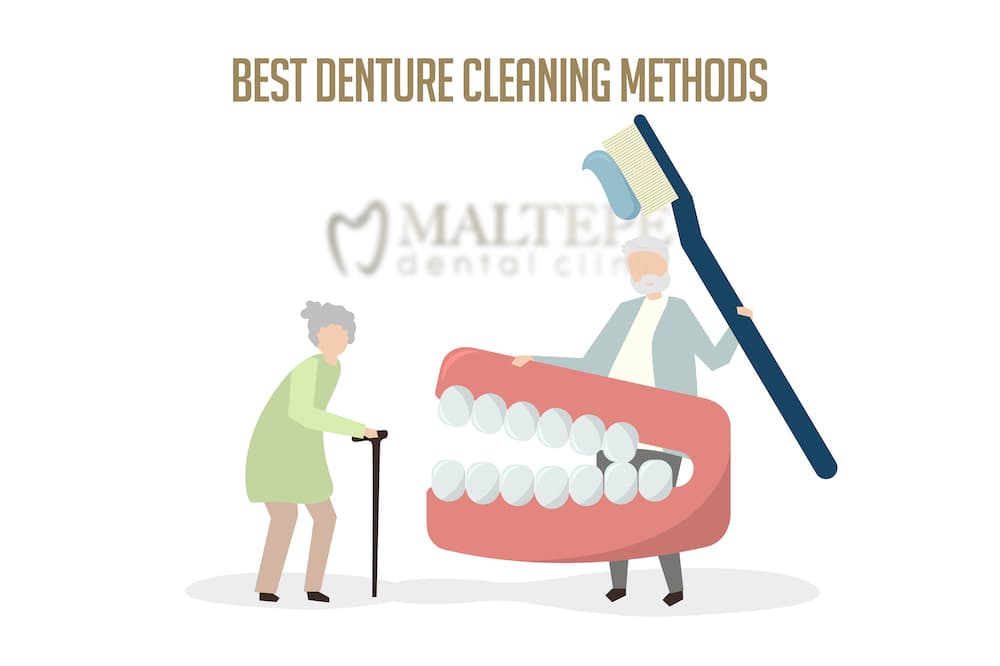
Why Is It Important To Clean Your Dentures?
Proper denture hygiene is of critical importance in several aspects such as oral infection, functionality, and longevity. There is a significant relationship between dental stomatitis or yeast and denture hygiene, according to a study published in the Journal of Dental Rehabilitation, in 2002. However, the importance of denture cleaning is not limited to that. Here is a list of some of the most significant benefits of denture cleaning:
– It prevents oral infections and related diseases by removing food particles and bacteria.
– It increases the functionality and longevity of the dentures.
– It ensures overall oral hygiene and fresh breath, which translates into self-confidence.
What Are The Different Types Of Denture Cleaning Methods?
There are 2 main denture cleaning methods, and each has its subtypes:
Mechanical methods
- Manual cleaning
- Vibration-based cleaning baths
Chemical methods
- Bleach based
- Effervescent type
- Mineral acid based
- Enzyme-based cleaners
- Oral rinses
- Flexible denture cleaners
Let’s go over each of these denture cleaning methods briefly;
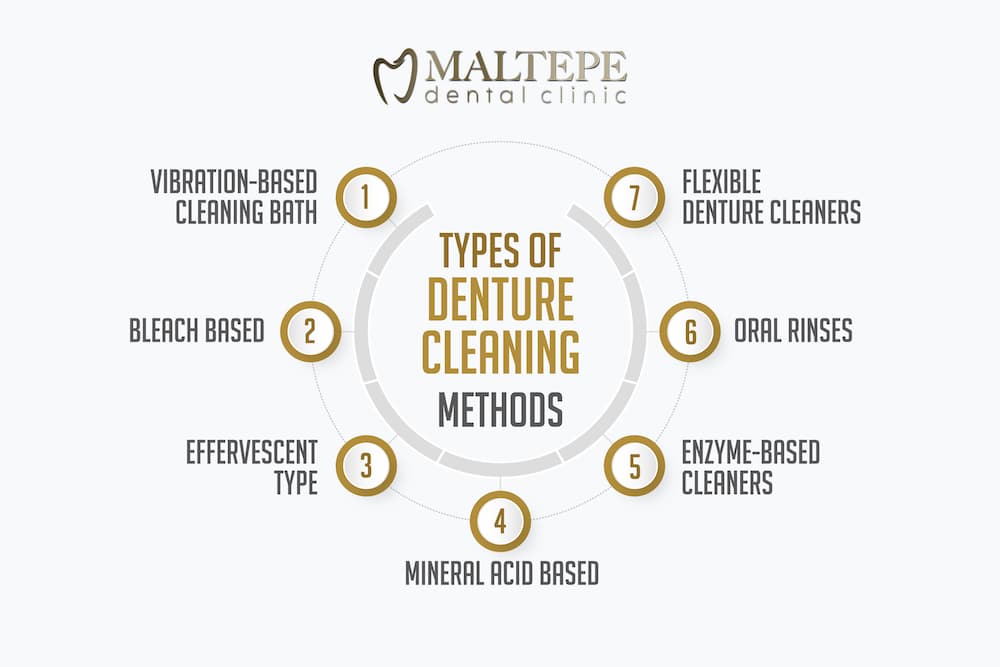
Mechanical Methods
Mechanical methods include manual cleaning and vibration-based cleaning baths. Manual cleaning can be performed using one or more of the following agents:
- Denture toothpaste (denture cleaning paste)
- Denture cleaning gel
- Denture cleaning foam
- Denture cleaning powder
As for the vibration-based cleaning baths, there are two ways to go. They are:
- Ultrasonic cleaning bath, with a frequency range between 20 kHz and 60 kHz.
- Sonic Cleaning bath, with a frequency less than 10 kHz.
Chemical Methods
Chemical denture cleaning methods involve various chemicals and modes of action.
Bleach-based cleansers include %1,5 to %2 sodium hypochlorite or sodium hydroxide. The agents get activated in water and dissolve microbial cells, and mucins as well as degrade fatty acids.
Effervescent type cleansers contain one or more of the following oxidants leaving carbon dioxide or oxygen bubbles on the denture surface to facilitate cleaning.
- Peroxide
- Bicarbonate
- Percarbonate
- Persulphate
Mineral acid-based cleansers contain phosphoric or hydrochloric acids. The mineral content in this type of cleanser dissolves the cell membranes and biofilm deposits.
Enzyme-based cleaners are similar to effervescent-type cleaners, but they also contain additional enzymes including proteases, amylases, and lipases.
Oral rinses refer to any mouthwash product. They are effective thanks to the chlorhexidine content. The concentration ratio varies between 0,2% and 4%. The higher the concentration, the better hygiene dentures get. However, prolonged use of oral rinses can stain the denture as well as natural teeth.
Flexible denture cleaners are special toothbrushes with silicone bristles and denture special flexible denture cleaners. The formulation of flexible denture cleaners is similar to effervescent type cleansers in which antioxidants help remove the microorganisms on the denture.
In this video, Dr. Chhaya Chauhan (GDC: 83940) gives some tips & information on cleaning and maintaining dentures.
How to Clean Dentures Made of Different Materials?
Different denture material types require different considerations, and thus techniques and materials. Here are short instructions on how to clean common denture types:
Metallic Dentures
Manual cleaning using denture brushes and creams is good for metallic dentures as they are less vulnerable to the risk of damage. However, avoid acid or bleach-based cleaners that might corrode the denture surface. Although some types of metal dentures are resistant to chemicals, you should still ask your dentist before opting for a chemical cleaning.
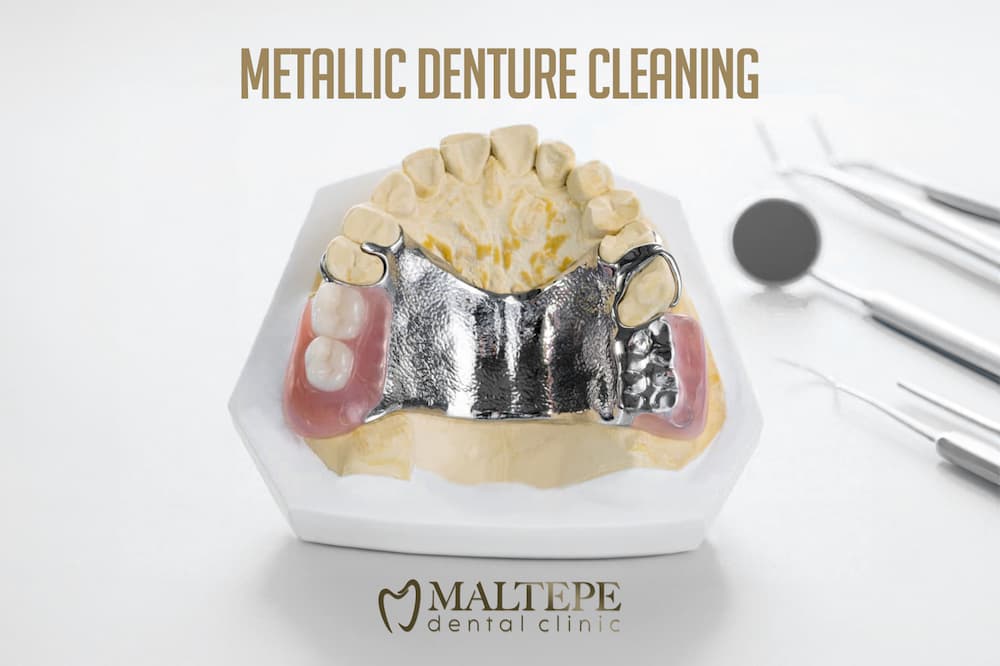
Acrylic Dentures
Acrylic-based dentures are the most common denture types prescribed by dentists. Typical toothbrushes might scratch the denture surface, therefore make sure your brush is a soft-bristled one. You should avoid regular toothpaste and bleach-based chemicals for acrylic denture cleaning. However, special denture toothpastes are suitable for acrylic dentures as they do not contain abrasive ingredients.
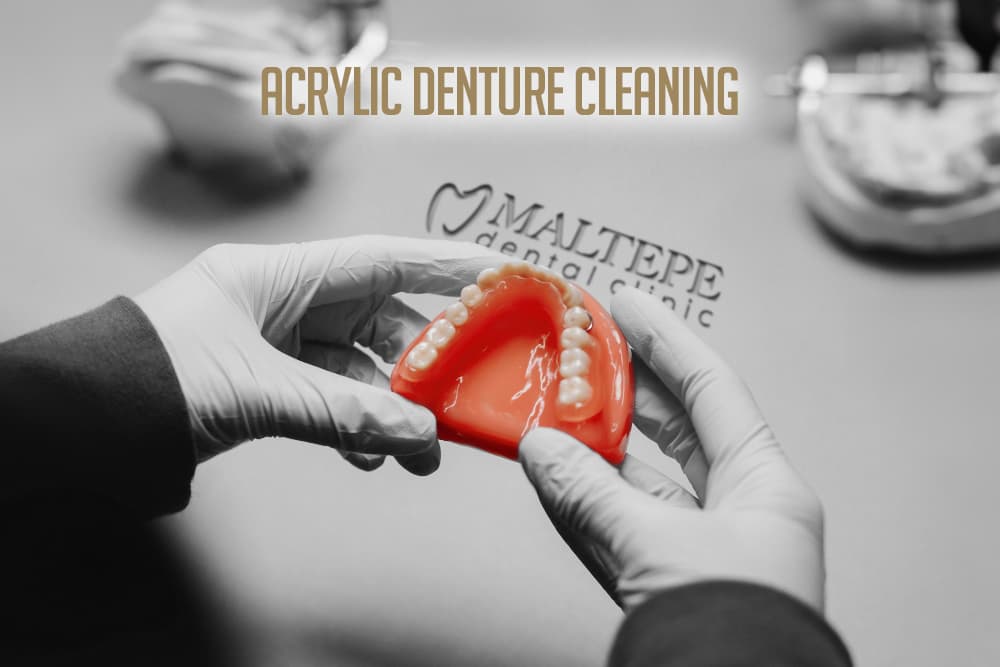
Polymer Dentures
Manufacturers of polymer-based dentures (aryl ketone polymer-based dentures) report that this type of denture is compatible with all types of denture cleaning methods and denture cleaning products. However, there is not enough research testing their compatibility. Therefore, you are advised to follow the manufacturer’s instructions.
Flexible Dentures
Flexible dentures are made from thermoplastic polyamide resins, and they are resistant to cleaning agents and solvents. However, flexible denture manufacturers promote their cleaning products rather than using any cleanser randomly.
Here is a table illustrating denture types and required cleaning techniques.
Denture Cleaning Methods With Different Denture Materials
| Denture cleaning method | Metal dentures | Acrylic dentures | Polymer-based dentures | Flexible dentures |
| Denture brush | ✓ | X | ||
| Toothbrush | ✓ | ✓ | ✓ | X |
| Silicone brush | ✓ | ✓ | ✓ | ✓ |
| Bleach-based | X | ✓ | ✓ | X |
| Effervescent type | ✓ | ✓ | ✓ | X |
| Mineral-acid-based | X | ✓ | ✓ | X |
| Enzyme-based | ✓ | ✓ | ✓ | X |
| Oral rinses | ✓ | ✓ | ✓ | X |
| Flexible denture cleaner | ✓ | ✓ | ✓ | ✓ |
How To Clean Dentures With Stains?
To clean dentures with stains, use hydrogen peroxide, salt water, baking soda, or mouthwash.
How To Clean Dentures With Plaque?
To clean dentures with plaque, use vinegar, hydrogen peroxide, salt water, or baking soda.
How To Clean Dentures With Tartar?
To clean dentures with tartar, soak your dentures in a mixture of vinegar and warm water for 15 minutes overnight.
How To Clean Dentures With Odors?
To clean dentures with odors, remove your denture, soak it in vinegar overnight, and brush it gently.
What Are The Best Ways To Store Your Dentures?
The best way to store your dentures is by keeping them in warm water or denture solution.
How Should I Store Dentures Overnight?
You should store your dentures in water or denture solution overnight.
Should Dentures Be Stored In Water?
Yes, dentures should be stored in water.
What Are Common Mistakes To Avoid When Cleaning Dentures?
The most common mistakes to avoid when cleaning dentures are:
– Using abrasive cleaning materials
– Keeping them under hot water
– Not rinsing them properly.
How Often Should You See Your Dentist For Denture Care?
You should see your dentist at least twice a year for denture care.
How Often Should I Clean My Dentures?
You should clean your dentures at least once a day, and after eating if you need to.
Can You Use Denture Cleaner On Invisalign?
No, you shouldn’t use denture cleaner on Invisalign. Instead, use antibacterial soap or Invisalign cleaning crystals.
Can I Use Bleach To Clean My Dentures?
No, you shouldn’t use any type of bleaching products to clean your dentures. Bleach can weaken dentures and make them look unsightly.

